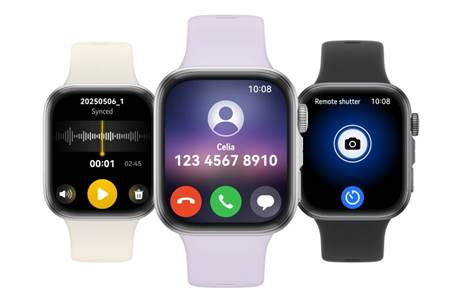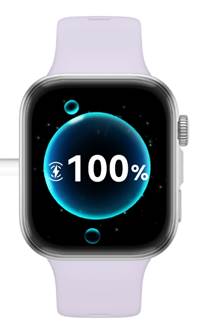Smartwatches like the Watch Fit 4 aren’t just about technology—they’re shaping how people live, work, move, and communicate. These
compact wearables offer a blend of utility, health monitoring, and digital
access that fits neatly on the wrist. Their impact is growing as more people
discover how smartwatches can improve their routines. Whether you're managing
your day, tracking your health, or staying connected, smartwatches are
influencing habits in subtle but meaningful ways. Let’s take a closer look at how these devices
are transforming everyday life.

Real-World Benefits of Wearing a Smartwatch
Smartwatches offer practical advantages
that save time, boost awareness, and help users stay organized. Many of these
changes are happening without people even realizing it.
Stay connected without distraction
Smartwatches allow users to receive calls,
texts, and app alerts without having to constantly check their phones. This
reduces screen time and limits the distractions that come with smartphone use.
Whether you're in a meeting, commuting, or exercising, the quick-glance updates
help you stay in the loop while staying focused. People can also use voice
assistants directly from their watches. With a short command, they can set
reminders, reply to a message, or check the weather. This makes multitasking
easier and more efficient, especially during busy moments.
Take control of daily fitness
Smartwatches motivate users to move more
and track progress with real-time stats. They count steps, log exercise, and
measure heart rate throughout the day. You can see how active you've been, how
many calories you’ve burned, and whether you’re meeting your fitness goals. More advanced models support workouts
like running, swimming, yoga, and cycling. They even provide GPS tracking,
allowing users to review routes and performance after each session. These
features turn the watch into a personal fitness coach—always ready to push you toward better
habits.
Improve sleep and recovery
Sleep tracking has become a popular
feature. Smartwatches monitor how long you sleep and how restful it is. Some
offer sleep scores or breakdowns of sleep stages, helping users understand
patterns and make changes for better rest. Getting good sleep impacts focus,
energy, and health. With smartwatch data, users can see the effects of
late-night screen time, inconsistent schedules, or caffeine intake—then make smarter choices to improve rest
and recovery.

How Smartwatches Shape Health, Safety, and
Mindset
Beyond convenience, smartwatches now play a
role in healthcare and safety. They also promote mental well-being and focus
through subtle reminders and insights.
Track vital signs for early awareness
Many smartwatches now monitor heart rate,
blood oxygen levels, and even detect irregular rhythms. This data provides more
awareness about personal health. Users can spot changes and bring the data to
their doctors for review. Some devices also include ECG or stress tracking
features. These tools allow people to take a more active role in managing their
wellness. Rather than waiting for symptoms to show, users can monitor subtle
shifts and take action early.
Support safety through real-time alerts
Fall detection and emergency SOS features
have become standard in high-end smartwatches. If a fall is detected and the
user doesn’t respond, the watch can automatically contact emergency services or
send a location to a family member. This offers peace of mind, especially for
seniors, solo travelers, or people with health conditions. It turns the
smartwatch into a silent guardian that reacts when needed.
Encourage healthier habits through nudges
Smartwatches provide subtle reminders to
stand, breathe, hydrate, or move throughout the day. These nudges help break
long sitting periods and promote mindfulness. Even short breathing exercises
guided by the watch can lower stress and improve focus. Users can customize
these reminders based on their goals. The effect is small but consistent—creating better routines over time
without being overwhelming.
Conclusion
Smartwatches are no longer luxury
accessories or fitness-only tools. They’ve become useful, everyday companions that quietly improve how
people live. From managing time and boosting activity to supporting health and
safety, smartwatches play an active role in helping users take control of their
routines. As technology improves, so will the capabilities of these wearable
devices. But even now, they’re changing habits, increasing awareness, and helping people live
more intentionally—one vibration or tap at a time.
